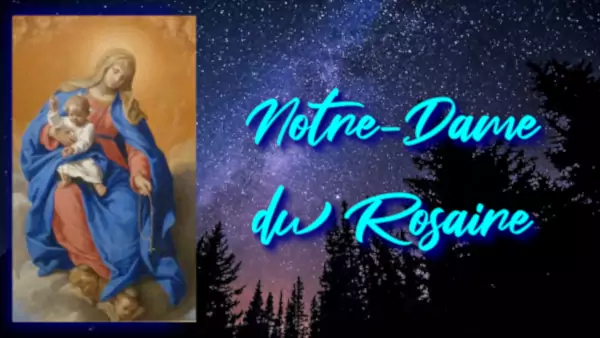07 October - Our Lady of the Rosary is one of the many denominations of the Virgin Mary, given since she presented herself under this name to Saint Dominic in the 13th century at Prouilhe. The Dominican Order was an ardent propagator of the Rosary.
The feast of Our Lady of the Rosary was first called Our Lady of Victory to celebrate the victory of Lepanto on 7 October 1571, a battle that united Spain, the Republic of Venice and the Papal States against the Ottoman invader, a victory that was attributed to the recitation of the rosary requested by Pope Saint Pius V at the time. In 1573, his successor Gregory XIII changed the name of this local festival to the Feast of the Holy Rosary, which is celebrated on the first Sunday of October.
It was therefore instituted to meditate on the Marian mysteries and to unite with the life of the Virgin, as well as to remember secondarily the liberation of the West from the Ottoman threat.
Clement XI extended the feast of the Holy Rosary to the entire Latin rite Catholic Church in 1716 following the victory of the Imperials over the Ottomans at Petrovaradin/Peterwardein (now in Serbia), and St. Pius X fixed the feast on 7 October in 1913. Saint John XXIII changed his name again to Our Lady of the Rosary in 1960.








